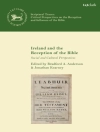A critical examination of the category of ‘Polishness’ – that is, the formation, redefinition, and performance of various kinds of Polish identities – from a wide range of disciplinary perspectives.
Inspired by new research in the humanities and social sciences as well as recent scholarship on national identities, this volume offers a rigorous examination of the idea of Polishness. Offering a diversity of case studies and methodological-theoretical approaches, it demonstrates a profound connection between national and transnational processes and places the Polish case in a broader context. This broader context stretches from a larger Eastern European one, a usual frame of comparison, to the overseas immigrant communities. The authors, renowned scholars from Europe and the United States, thus demonstrate that an understanding of modern Polish identity means crossing not only historical but also geographical boundaries.
Consequently, the narrative on Polish identity that unfolds in the volume is a personalized and multivocal one that presents the perspectives of a wide range of subjects: peasants, workers, migrants, ethnic and sexual minorities-that is, all those actors who have been absent in grand national narratives. As such, the examination of Polishness sheds light on the identity question more broadly, emphasizing the interplay of pluralizing and homogenizing tendencies, and fostering a reflection on national identity as encompassing both sameness and difference.
विषयसूची
Introduction: Polishness. A Story of Sameness and Difference
Agnieszka Pasieka
Part One: Redefining Polishness
1: The Birth of the ‘Polak-Katolik’
Brian Porter-Szűcs
2: Vita Magistra Historiae? The Case of A. B.
Paweł Bukowiec
3: An Anti-Imperial Civilizing Mission: Claiming Volhynia for the Early Second Republic
Kathryn Ciancia
4: Suspicious Origins as a Category of Polish Culture
Irena Grudzińska-Gross
5: Redefining Polishness through Jewishness
Geneviève Zubrzycki
Part Two:
Identity in the Making
6: Human Mobility and the Creation of a Transatlantic Polish Culture
Keely Stauter-Halsted
7: ‘Good Americans’ and Polish Modern Identity Construction after World War I
Krystyna Lipińska Illakowicz
8: From ‘True Believers’ to ‘Cultural Feminists’: Polish Identity and Women’s Emancipation in post-1945 and post-1989 Poland
Magdalena Grabowska
9: Labor, Gender, and Interethnic Relations among Polish-American Communities in Rural Massachusetts
Agnieszka Pasieka
10: Being European in Poland and Polish in Europe: Transnational Constructions of National Identity
Marysia Galbraith
Part Three:
Portraits and Performances 11: Views of Polishness: Style and Representation in Local and National Exhibitions
Małgorzata Litwinowicz
12: Plebeian, Populist, Post-Enlightenment-Mass Sarmatism and Its Political Forms
Przemysław Czapliński
13: The Polish Connection: Lithuanian Music and the Warsaw Autumn Festival
Lisa Jakelski
14: Performing Polishness Abroad: (Non-)Polish Actors and the Construction of (Trans)National Identities in European Cinema
Kris Van Heuckelom
15: ‘Poles-Their Own Portraits’ Revisited: Taking a Critical Stand
Ryszard Koziołek
Afterword: Polishness. A Time of Deconstruction, a Time of Reconstruction
Paweł Rodak
Editors and Contributors
Index
लेखक के बारे में
PAWEL RODAK is a historian and professor at the Institute of Polish Culture, University of Warsaw.












